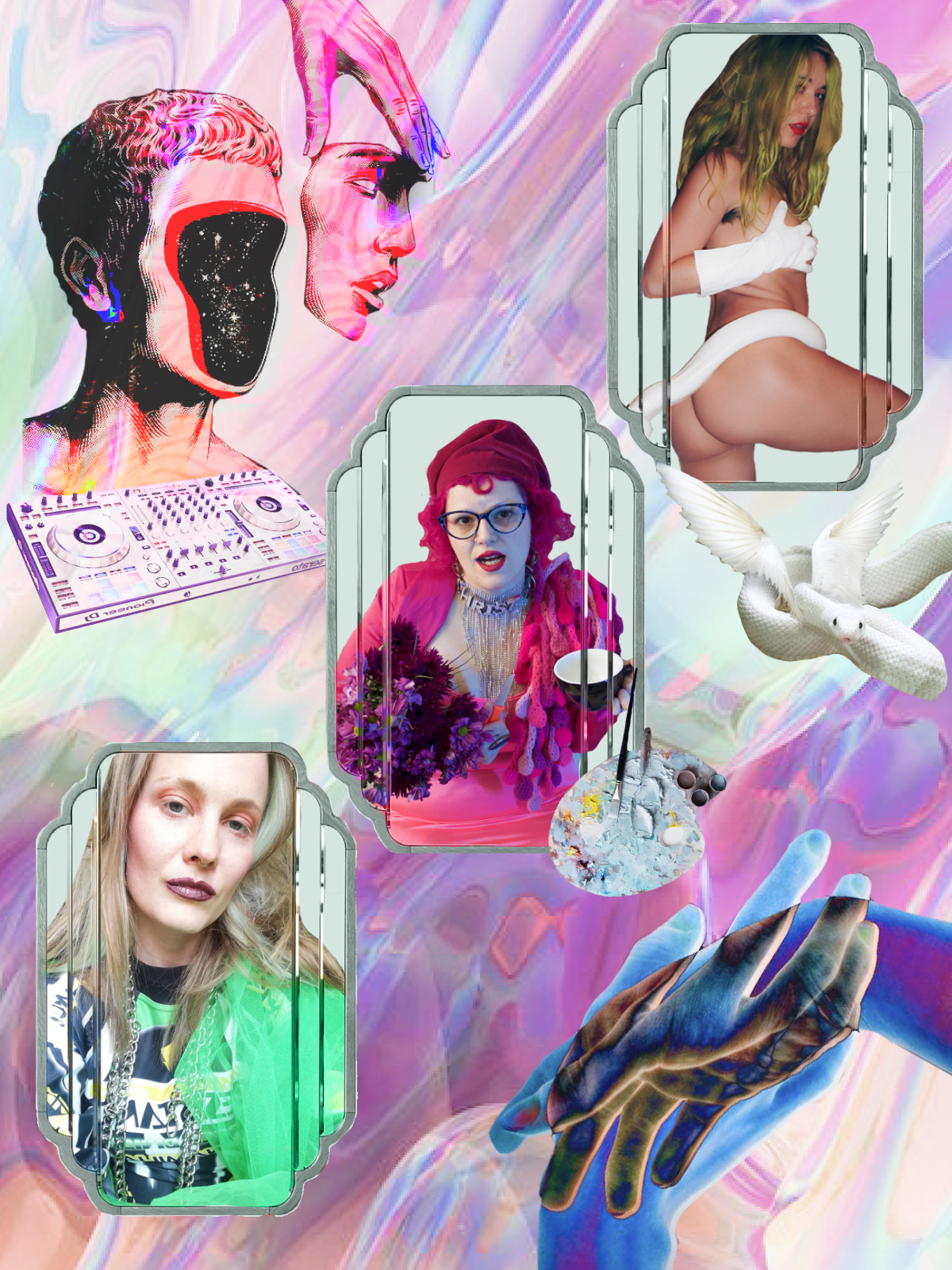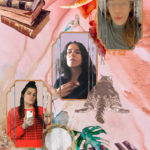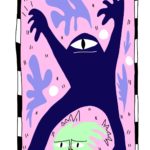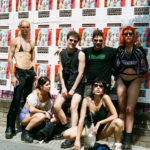We at YEOJA Mag are determined to continue to bring you our regular content but…
Creatives Quarantine Interviews 2
we chat with three Berlin creatives on what self isolation has been like9 July 2020
Today, YEOJA introduces you to yet another three magical, artist wonder-womxn that we curated with a spoonful of love for you. While they all share a savviness of creativity, the way they make a living often depends on sharing their work with a live audience.
With the event of George Floyds murder on the 25.05.2020, following thousands of tragic racially motivated [police]killings and countless acts of injustice, we felt like this series became irrelevant. The interviews were conducted between 05.05.2020 – 15.05.2020 and focus on quarantine life advice. We decided to go ahead and publish this article later than planned, in case it contains useful mental health advice for our readers. Check out last months’ article here.
In times of Covid-19, lockdowns continue in different degrees all over the globe and gatherings of all kinds — but especially the hot and sweaty ones — have been put on hold for an unforeseeable amount of time. How have these wonderful creatives been dealing with the unprecedented? YEOJA has collected the answers for you.

GRINDERTEETH
Ves is a norwegian born, Berlin-based music producer, DJ, and light artist known in the music scene as Grinderteeth (@grinderteeth).You’ll often find Ves performing live with her experimental sets and mixes, doing art installations, creating immersive light shows for clubs and performances, and hosting events with No Shade, a DJ collective that YEOJA interviewed back in 2018.
Hi Ves! What is the last thing you remember doing before the shutdown?
Ves: I was in Istanbul playing some shows when the shutdown really started going down. I played a concert the night before I had to leave prematurely to try to get back to Berlin because of the flight bans and border closures that were being implemented in Turkey. The energy of the people at this show was so uplifting and I’m grateful that I got to have this last moment of connecting over music before everything shut.
How has life changed for you? Which area has been affected most?
Ves: I can’t really work at all. All my gigs have been postponed or canceled. The clubs where I do lights on a regular basis are shut until at least the end of August, and in my collective No Shade, we also had everything canceled or postponed.
It has gone from what was supposed to be one of my most active years yet – with traveling and projects – to an almost complete halt. The area it has affected the most is definitely professionally: my work, financial stability, and career. Much of my social life is also built around this scene, so I have changed the way I socialize as well.
How has this pandemic affected you creatively?
Ves: For me, it’s hard to be creative when there’s a lot of uncertainty and you lack social interaction and structure. I have to work a lot harder on trying to get work done in any creative process. My artistic drive is focused on trying to make some pieces that make people reflect, feel encouraged to act on [current] political moment[s], or provide space to take a break and recharge, like the mix I created for this interview.
…emotionally?
Ves: I notice I am more emotionally raw than usual. It’s probably linked to unconscious stress about the future and the current situation, but now I feel much more affected whenever I experience something that moves me – whether it’s positive or negative.
…existentially?
Ves: I’m asking myself a lot of questions during this time, because after ten years of hard work I was on a very good track, yet also running around a lot with projects. I don’t know what the situation will be like for the club scene – which is where the majority of my work is based – when [clubs are] allowed to open back up. At the same time, I am asking myself how important this work is with everything that’s going on now, in the grand scheme of things, and whether this is really where I should invest my energy. So I’m taking this time to reflect on life, and to expand on my skills, so I can try to find alternative ways to stay afloat financially – as that affects what you can [and can’t] do and how you deal with everything.
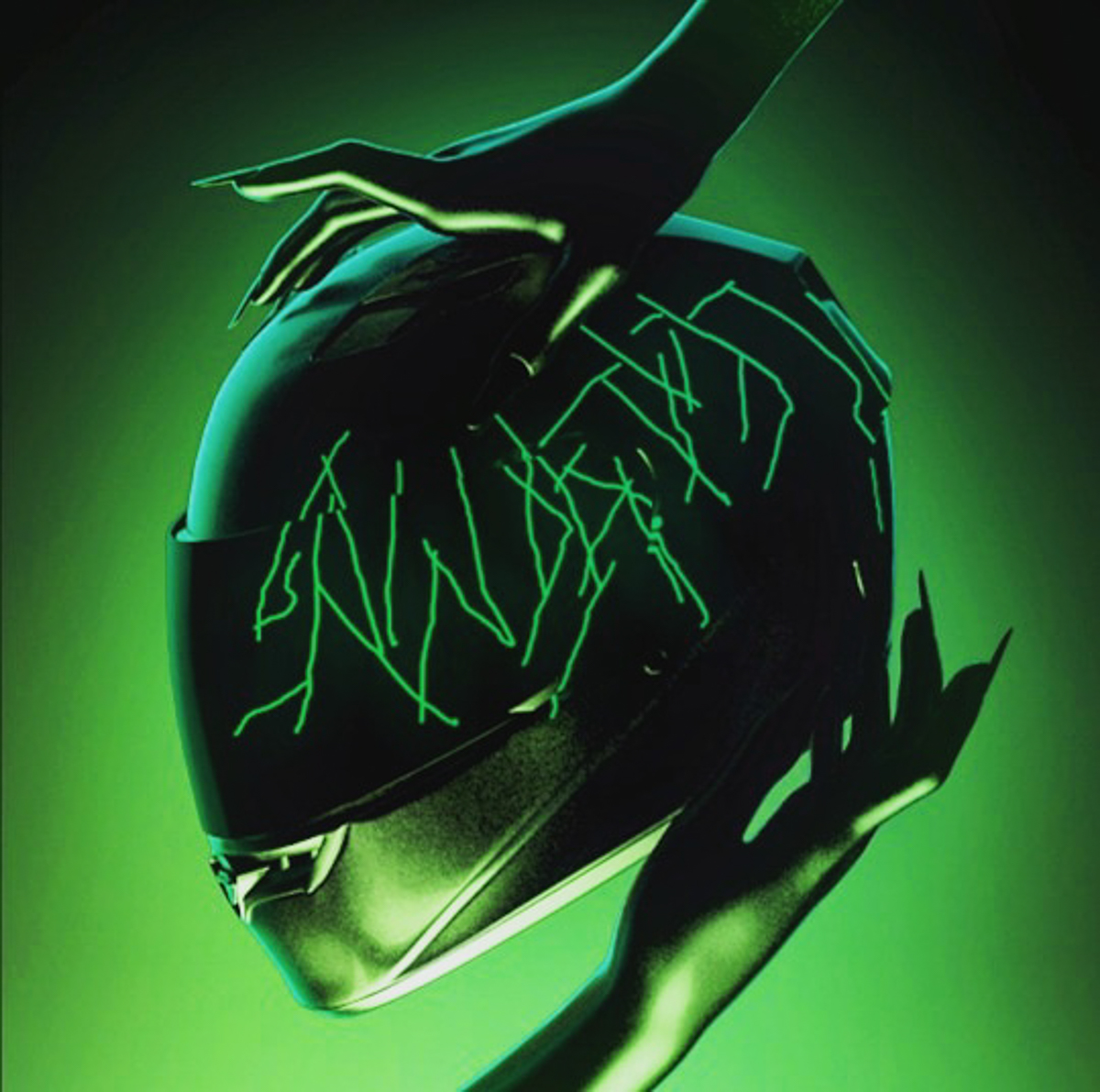
What have you learned about yourself since isolation?
Ves: I think a positive has been that the quarantine has given me a chance to really establish and become aware of the fact that I feel good while alone. That you can practice strategies to create an experience of balance in life. I have always had some issues with that and have intentionally been addressing this in the last years.
The quarantine itself has also highlighted a high need for stimuli, and the restlessness that follows when life isn’t meeting that need. I process my stress physically, so I’ve been doing a lot of physical workouts to cope with this.
What do you miss most?
Ves: I miss touch and social interaction. Hanging out with friends in larger constellations, doing events with my collective, and working lights for events at Trauma Bar und Kino. Also, connecting over and sharing live experiences of music & culture.
What will you take from this time and integrate once normality hits again?
Ves: Politically, I am taking with me that there is no doubt it is the workers who create the economy and that the current system is completely fucked. Money can be found for the things that really matter when there is a will. Now is the time to unite and unionise to create a fairer society. I was already angry about a lot of these topics and the way in which certain essential professions are undervalued in society. The pandemic has definitely underlined and enhanced this. Additionally, the quarantine has really ingrained in me the idea that your mind and body are connected – being physically active aids a focused mind and present body.
Have you been following the news? How has that made you feel?
Ves: I do. I don’t like it, yet I feel like it’s important to stay informed even though it’s stressful. To invoke James Baldwin: “not everything that is faced can be changed, but nothing can be changed until it is faced”.
I do think it’s important to take breaks though. I notice that when I read very heavy articles on the prospects of the future or what’s currently going on, it weighs me down and I think there is a real danger of becoming pacified by it if those feelings aren’t managed. I believe it’s good to find a balance where you don’t overload your neural system to a point of becoming paralyzed with the sheer amount of it.
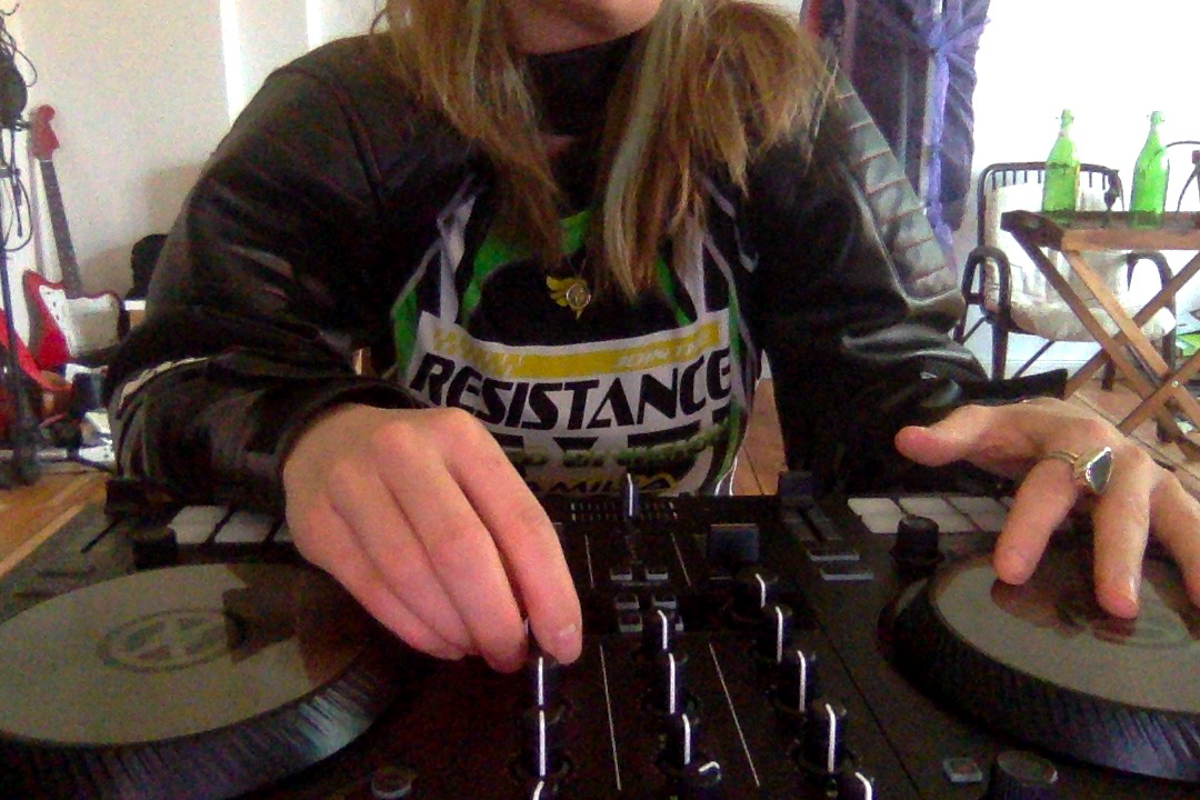
How has this time made you reflect upon your privilege?
Ves: I’ve reflected a lot on my economic privilege and privilege of safety. I got the immediate emergency grant for freelancers from the German government and I feel grateful for the fact that I also have my own apartment at this particular time. Having the privilege of having a solid home; close to nature, where I can quarantine, has been really important during this pandemic.
[I’m also privileged] that my family is safe because they can work from the home of our farm, and live in a secluded part of Norway with a strong health care system. I know as much as you feel like the German system can break your spirit at times, I am extremely privileged in Berlin. These privileges are heavily tied to my identity as a white, cis-gendered, Scandinavian woman and it is my responsibility to fight for a world where these privileges become available to all identities.
How do you think you can make the most out of it?
Ves: Personally, I’ve donated and continue to donate financially as much as I can to Seawatch, Doctors Without Borders, Berlin Collective Action, and others and I encourage anyone who has financial ability to do so. I think if you have economic privilege you have a responsibility, as well as a positive opportunity to share it. Since I also can’t work right now and have time, I’m reaching out and volunteering as much as possible. It’s a unique window of time to really spend more energy unionising and organising to create change without burning to the ground financially. Even though it’s hard to know where to start in this ocean of it all, I think focusing on doing what you can with the resources you have at hand, every day, is a good place to begin.
I made this dreamscape mix to let you float away for a short period – It is based on duck diving, a technique where you dive under the waves crashing towards you, maintaining your speed charging ahead. That underwater feel. Perhaps right now that is a technique we need. Enjoy my dear YEOJA readers: Bioluminescent Ocean Mix by Grinderteeth
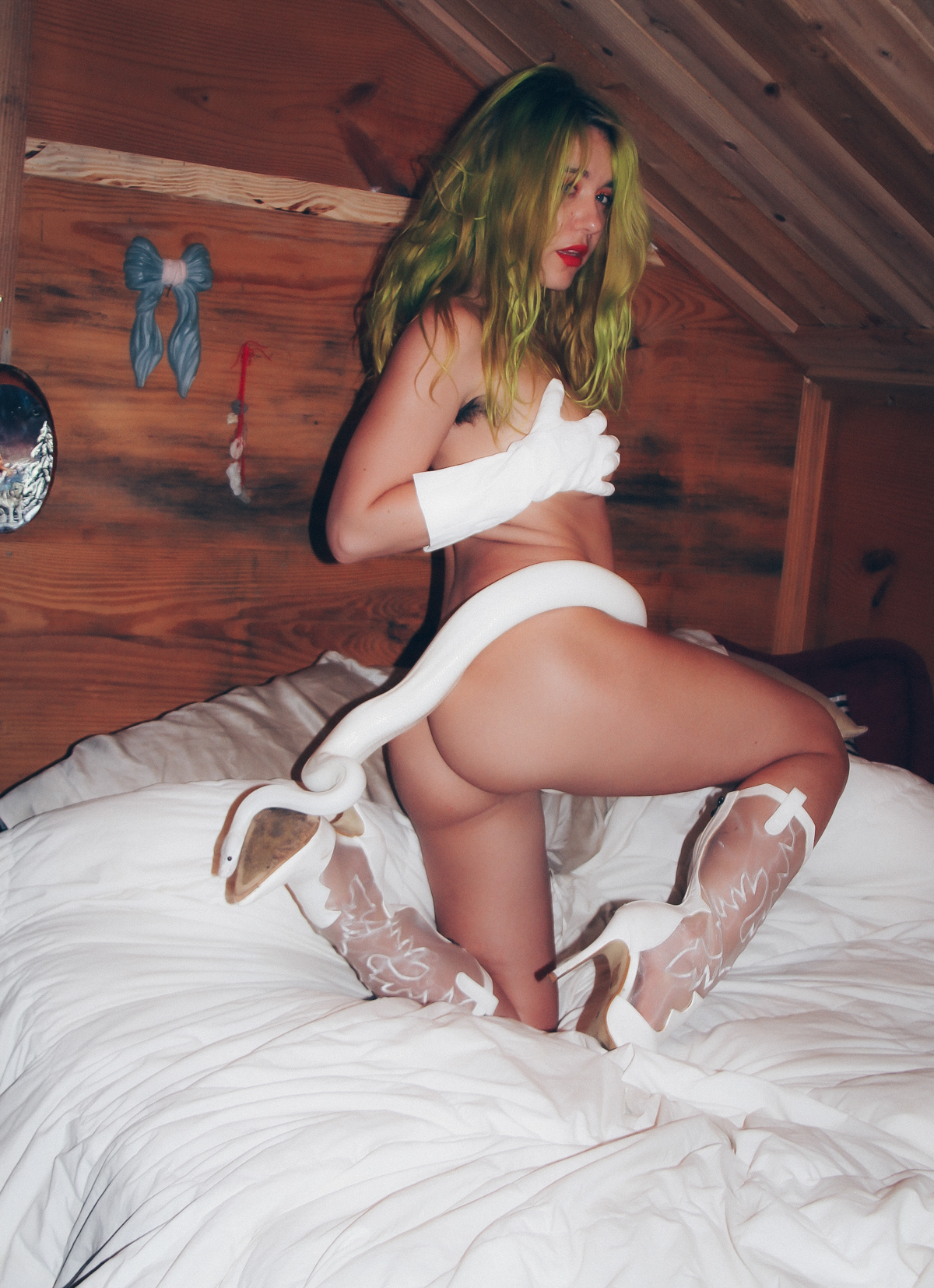
LABANNA BABALON
Labanna Babalon (@labannababalon) is a freewheeling, bootylicious, love-centered healer, stripper and multimedia artist who currently lives in rural Louisiana, about an hour away from New Orleans.
Labanna, what is the last thing you remember doing before the shutdown?
Labanna: I remember working at a DIY strip night called Rich Girls at the Poor Boys Bar in Nola (a locals term for New Orleans) getting really drunk and having a breakdown. I just had this gut-wrenching notion of impending doom, as I could feel old ways ending. [At the time], I regretted having moved out of the city but with what has happened in recent months I couldn’t feel more blessed.
Are you currently in self-isolation? Or are you in the company of friends, family, partners?
Labanna: I have been housing my immuno-compromised friend Pearl and staying very low-key as my landlady’s mom lives on the compound, and she’s ninety-nine years old.
How have you been coping?
Labanna: I’ve never believed in our society as a whole and I thought major things needed to happen to get people to wake up out of their matrix. I feel a lot of reflection about privilege and the insanely rich are coming to a head. I’m using this time to get really quiet and think hard on how I benefit from this system and what I can personally do to change it.
How has this pandemic affected you creatively?
Labanna: I’m torn between worlds, but I’m realising that one skin, that of a purely physical seductress, is ready to be shed; as it seems irresponsible considering all of my gifts.
I’m attempting to assert a more bossy role of directness while acknowledging the unease towards the word bossy. When said with a femme connotation you are considered a bitch, but when masculine it’s a success. How do I step into my power as a womxn, while addressing my role as a white womxn in a white supremacist colonial patriarchy in these armageddon-fear-mongering-alien-disclosure times? Like whaaat!? Times are crazy right now.
I feel the seeds of resistance being instilled, while the world is grieving and resting. Finally having time to pause, I’m enraged that those to be sacrificed are those who cannot pause or refuse to do so. It seems so engineered, on all levels. The thought that we are the virus, that when stripped of our greedy and constant consumption. We could easily live in harmony, working alongside our indigenous ancestors to help us see ways of existence, rather than polluting and murdering them consistently for centuries! When is it enough?
…emotionally?
Labanna: I’m stronger than usual because I was born into chaos. I have the tools to not be overcome with the messiness of our reality right now and traverse this with ease due to years of experience with dissociating trauma. I am prepared to help people survive deep pain. My first memories were singing to those on death’s door in hospice. I hope to sing more soon.
…existentially?
Labanna: Because right now everyone has to question their existence, I’m having lots of amazing conversations with souls that are aligned with change and not currently overwhelmed with existential issues. I try to not give into fear or focus on what went wrong, but instead focus on how we can do things differently.
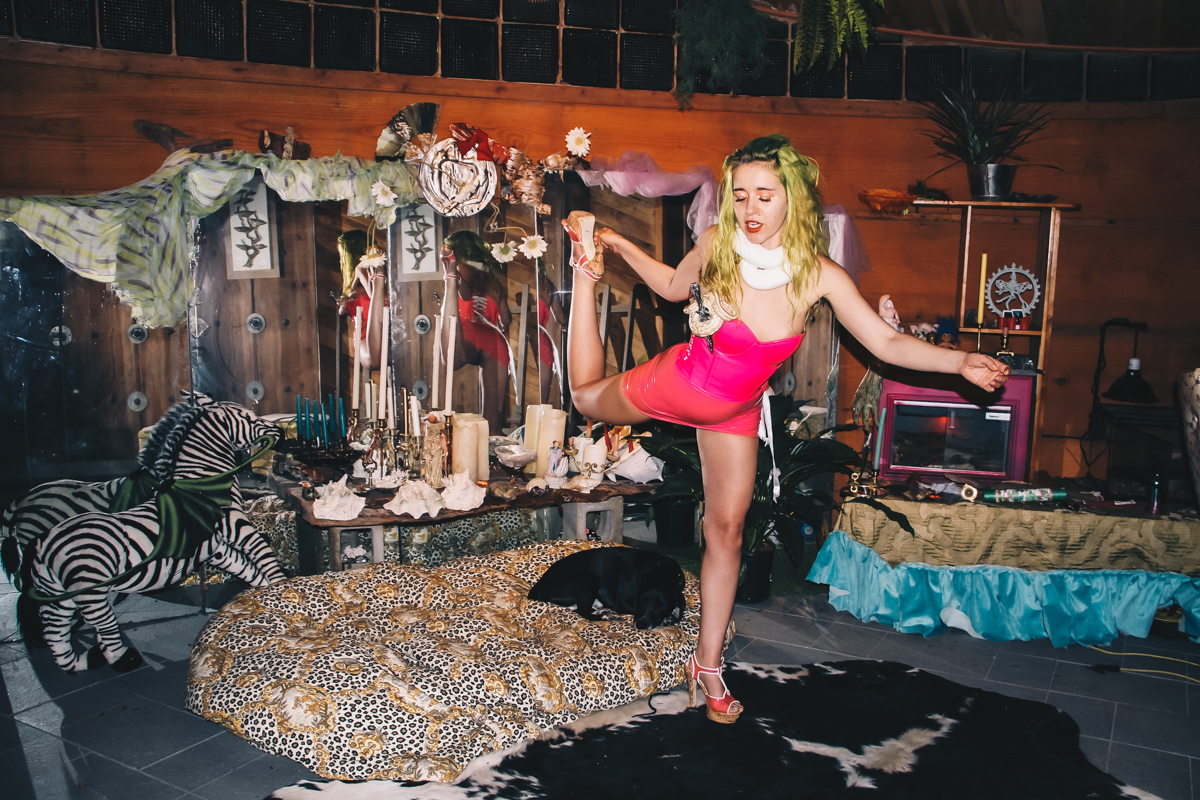
Are you team ‘pick up a new hobby’ or team ‘we need to learn how to chill’? If the first, what new habits or coping mechanisms have you picked up?
Labanna: I’m always team chill, more people need to do nothing to quiet their mind enough to hear their own voice, instead of listening to the normalised constructs of our so-called reality.
I want to unplug more. If I could log off completely I would, but I feel like I need to pick people up when the world is so dark right now.
What will take from this time and integrate once normality hits again?
Labanna: That normal isn’t safe, that it doesn’t encourage growth. That if some billionaires are not guillotined then I’ll be very disappointed And the importance that “making” already is a reality. Wishing I could be in a sexy spy group of bloodthirsty nymphs carrying out the earth’s revenge, but I guess this lifetime I get to experience a lot of love and time to smell the flowers.
[Labanna added this answer on the 10.06.2020 as a reaction to what has been happening globally since the death of George Floyds death, while the rest of the interview took place on 03.05.2020]
Labanna: It’s a privilege to not be forced to be a warrior by oppression. I am happy to be able to offer a safe place in nature for Black comrades to take a break and smell the flowers, but that’s only if white people [like myself] take the time to abolish the system that doesn’t allow for that kind of rest and rejuvenation. Decolonising the present moment takes owning up to your mistakes. The grid that we have been operating on is charged with hate; it is a matrix that pulls wool over our eyes to prevent us from seeing what is really going on.
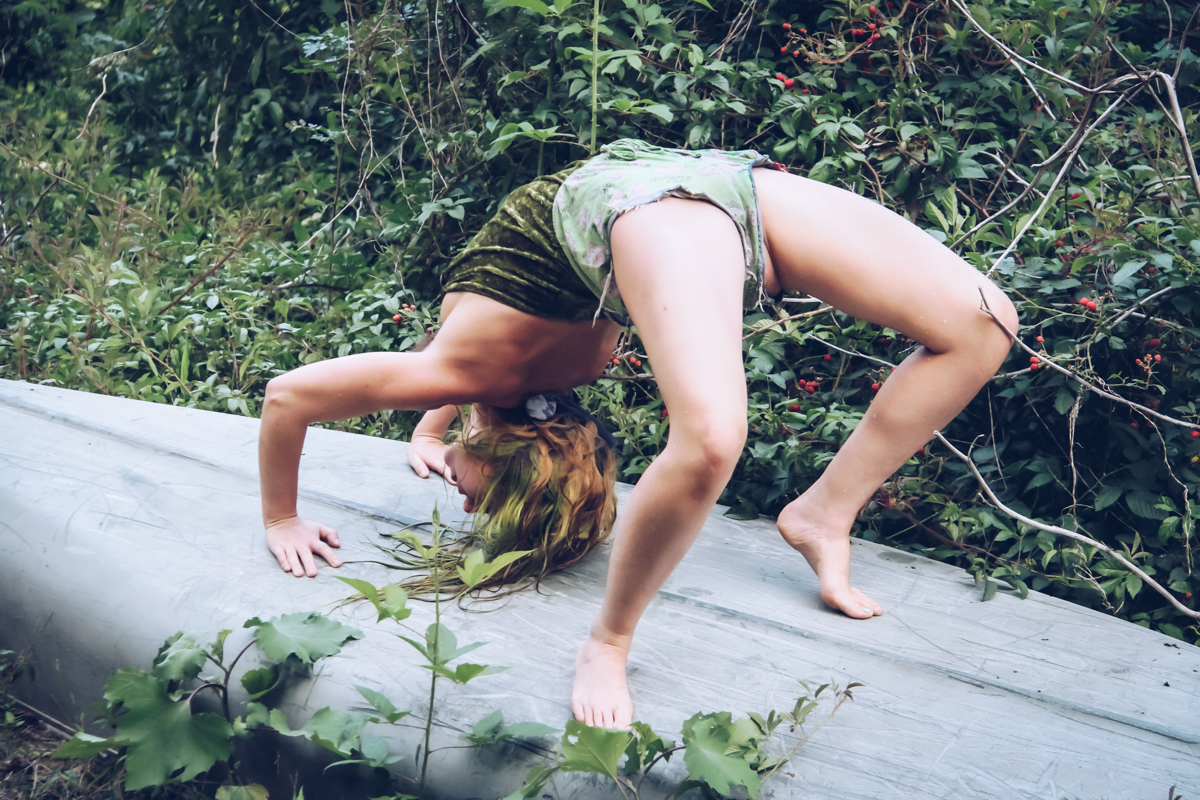
Are you feeling hopeful or fearful of what is to come after?
Labanna: I hope [COVID-19] opens people’s minds to how racism affects who lives and who dies. Who the system benefits and who it brings down.
Have you been following the news? and how has that made you feel?
Labanna: It’s happening, to those that are surprised please get to work! We are amidst a global spiritual war and it’s manifesting in anti-fascist uprising everywhere. Talk to your friends, take care of each other, dream big because history is in the literal making with the largest civil rights uprising in the history of our known consciousness.
How has this time made you reflect upon your privilege?
Labanna: I’m trying not to judge friends that are still jetting around for non-essentials, but at the same time taking note of them [putting] self-preservation over the effects [it has] on humanity.
I keep entertaining the notion of expressing how I am privileged online and that letting go of guilt for being consumed to the point of inaction helps no one. How could I voice the narrative of misuse of privilege in a way that inspires people to check it and act accordingly?
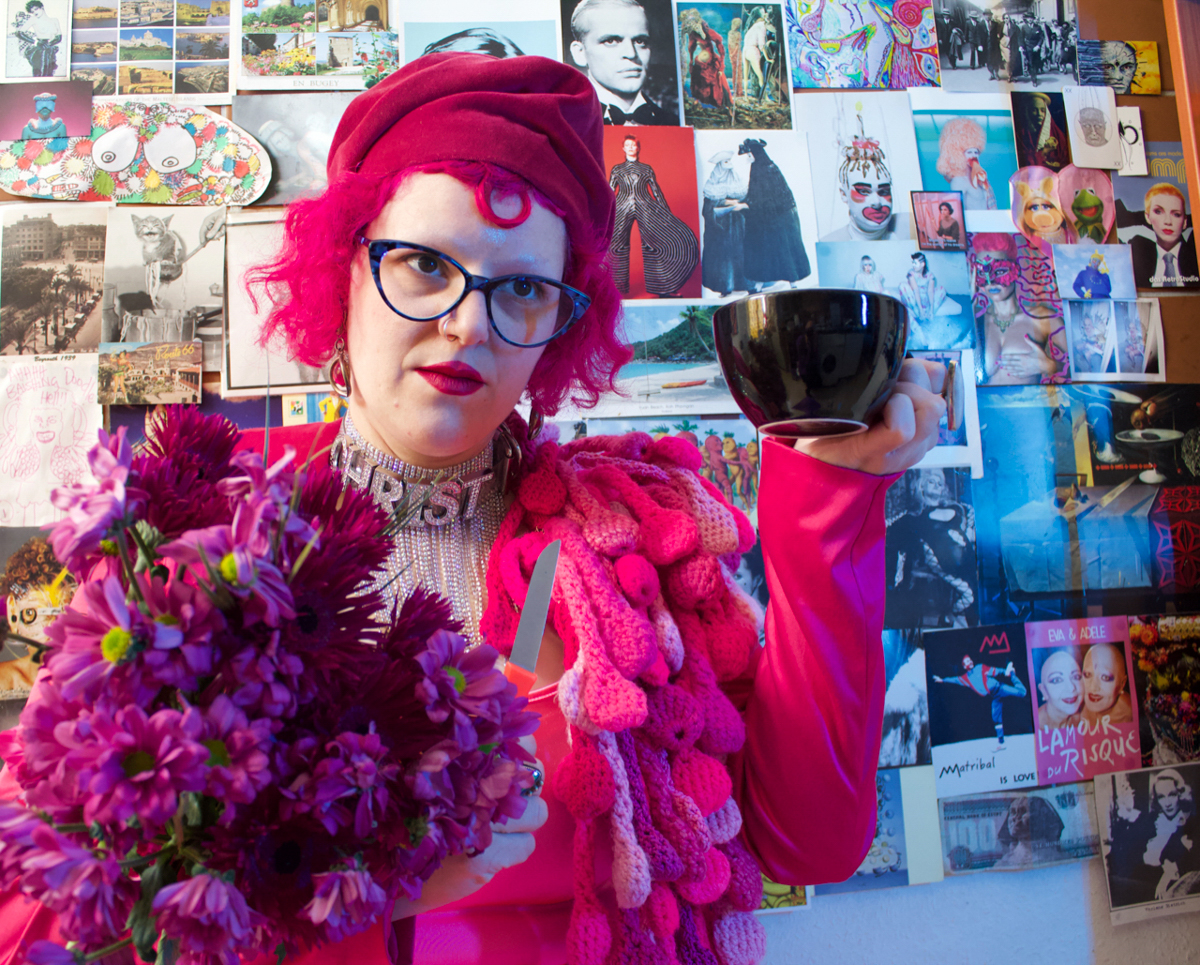
ANTO CHRIST
Anto Christ (@antochrist) was born in Malta, grew up in Australia and has been living in Berlin for the past six years. She creates crotched sculptures, paints and draws amongst other means of creation. ‘Art is my life, ADORNISM is my way’, she says. Adornism as a reaction to the oversaturation of society. While she lives to create, she is also a nanny, gives art workshops and works at Trauma Bar & Kino to make a living.
Hello there Anto Christ, what is the last thing you remember doing before the shutdown?
Anto Christ: I remember doing a shoot with a friend at my workplace, and afterwards going to a friend’s birthday party.
How have you been coping thus far?
Anto Christ: I’ve been very angry most of the time, angry at why this is happening and at the people in power in other countries who are causing so many people to die because of their greed or stupidity or lack of care. I’m creating and keeping myself busy but I’ve had many bad days of spiralling into fear and doubt that this world will get any better any time soon. But we have to keep fighting I suppose. I’ve been getting into making sculptures out of recycled glass bottles and plaster.
How has this pandemic affected you creatively? …emotionally? …existentially?
Anto Christ: My process hasn’t changed so much except it has gotten stronger. I always dreamt of waking up and creating until I go to sleep without having to waste time on things I don’t want to really do like my boring day jobs. But since the lock down I wake up and start painting or putting on makeup for a photoshoot or start sculpting and when I get bored I just put on a movie and start working on one of my crochet sculptures. I’m having a good time in that sense. All this frustration at the world has been good for changeling into stronger work. Ahhh, the life of an artist…
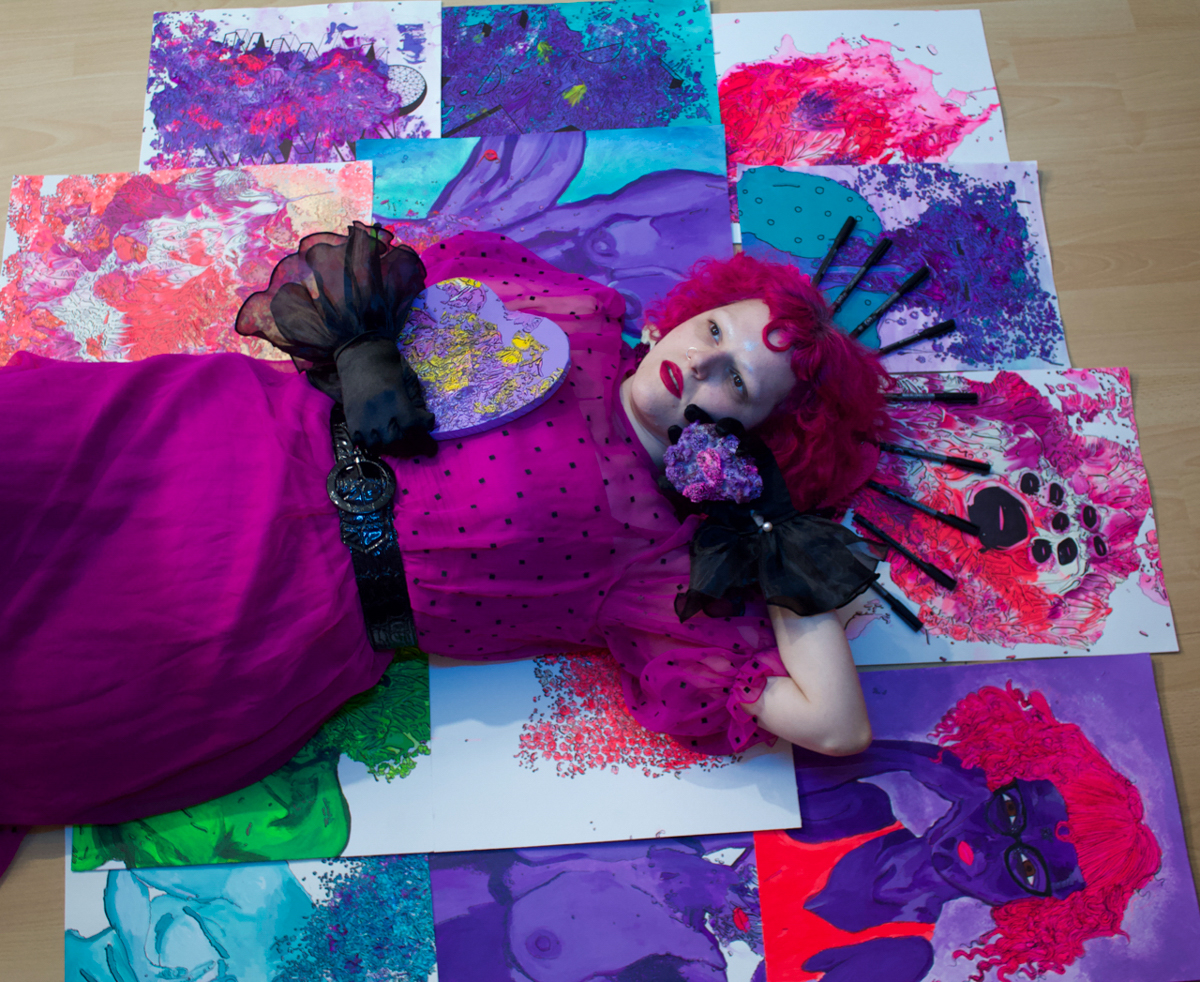
Are you team ‘pick up a new hobby’ or team ‘we need to learn how to chill’? If the first, what new habits or coping mechanisms have you picked up?
Anto Christ: I’m not sure if I’ve developed coping mechanisms as such. I go from caring so much, to spiralling into total disillusion, to not caring if the world blows up tomorrow, to if you want me I’ll be over here making stuff.
Are you able to tune into inspiration more or less?
Anto Christ: I’m always creating, whether it’s a good day or a bad day. It’s my medication and it’s like breathing to me.
What have you learned about yourself since isolation?
Anto Christ: I’ve learnt that I’m very privileged to be in Berlin at this time, I’m grateful for the people that I have all over the world that I can call during this time. I have learnt that my home, as boring as it seems on some days, is still a very comfy place to be in…
What do you miss most?
Anto Christ: I miss dancing, singing at Monster Ronson’s karaoke bar, people, [kissing] cheeks, partying at Trauma Bar, live Music, and Drag shows like Pansy Presents.
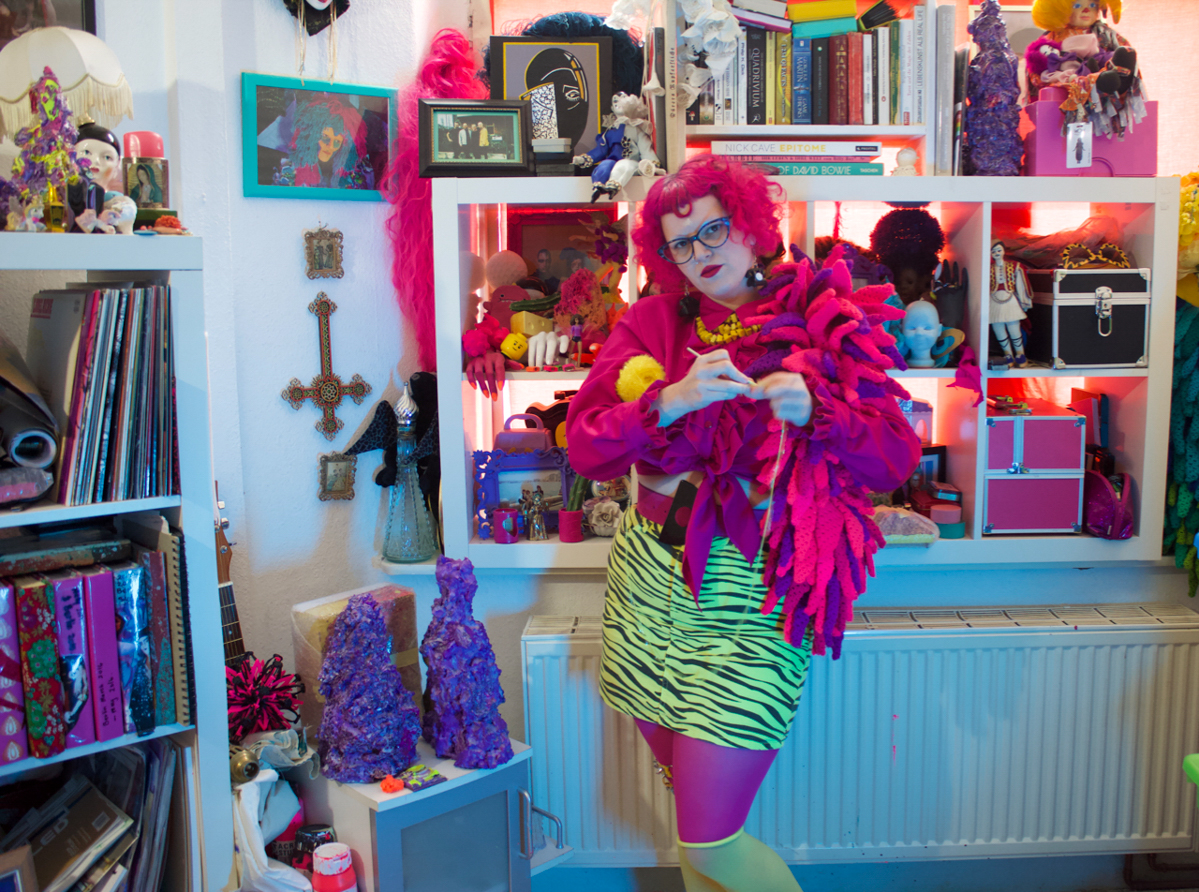
What will you miss most when this is over?
Anto Christ: I will miss the freedom of an open sneeze or accidental innocent cough without instant distrust.
What will you take from this time and integrate once normality hits again?
Anto Christ: I always have hope that we can change everything as I know this world is a hologram and it’s made up of all our fears and desires manifested. I know we can change everything if we really get together as a community and do something about all this crap. But do other people know how much power they have as a whole?
_
To read our article on how to take care of yourself and others in times of social distancing and/or quarantine, click here or read our interview with mental health professionals here. For other COVID-19-related pieces click here



